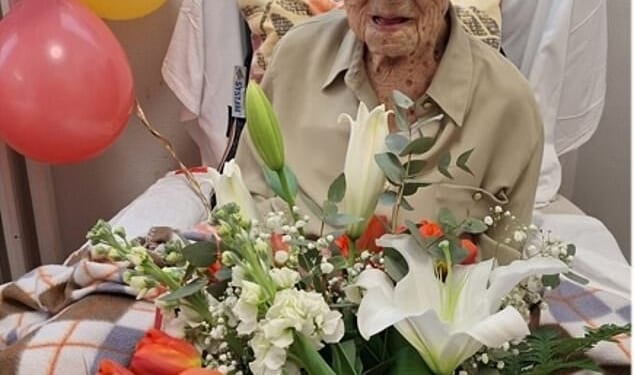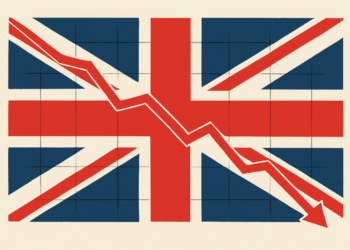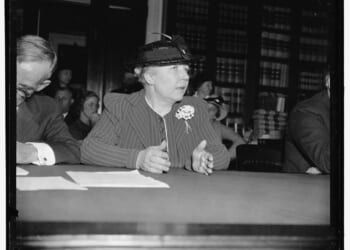Eating three yogurts a day could be the key to a healthy life, according to experts who have probed the body of the woman once crowned the world’s oldest person.
Doctors in Spain studied the DNA and biological profile of Maria Branyas Morera, who was the oldest person in the world before her death last year aged 117.
The supercentenarian’s daily routine included regular consumption of probiotic yogurts, which the scientists suggest ‘will have played an important role in her healthy ageing’ alongside avoiding alcohol and tobacco.
Her good genetics, which the Spaniard credited with her longevity, were also found to have played an important role.
Mrs Branyas, who was born in San Francisco in 1907, moved to Spain aged eight. She survived two world wars, the Spanish Civil War and the Spanish flu and Covid pandemics.
She contracted Covid aged 113 but made a complete recovery and asked doctors to ‘please study me so I can help others’ before her death.
Her preferred yogurt, which she ate daily for 10 years, was a local Catalan brand called La Fageda. It contains high amounts of healthy bacteria, including Lactobacillus delbrueckii bulgaricus and Streptococcus thermophilus, which can combat inflammation.
She also drank a smoothie containing eight different cereals daily, while she did not smoke or drink, and was not overweight.
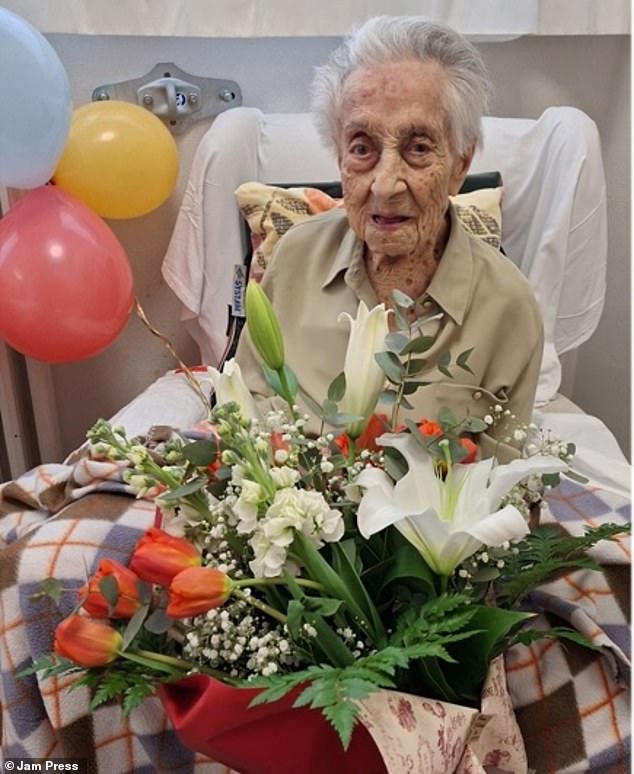
Doctors in Spain studied the DNA and biological profile of Maria Branyas Morera, who was the oldest person in the world before her death aged 117 last year
The great-grandmother maintained a strong social life and had friends and family nearby.
Scientists found Mrs Branyas’ biological age to be up to 15 years younger than her actual age.
Dr Manel Esteller, the study’s principal investigator, said: ‘The common rule is that as we age we become sicker, but she was an exception and we wanted to understand why. For the first time, we’ve been able to separate being old from being sick.’
‘There is very little previous evidence showing the benefits of yogurts and healthy long life, so this is completely new,’ he added.
International scientists led by researchers at the cancer epigenetics group of Josep Carreras Leukaemia Research Institute and the University of Barcelona probed the full range of Branyas’s genetics, comparing them with other very old people.
They collected body liquids including blood, urine, saliva and stool samples a year before she died.
Dr Esteller added: ‘We can develop drugs to reproduce the effects of good genes.
‘Maria’s parents gave her very good genes but we cannot choose our parents.’
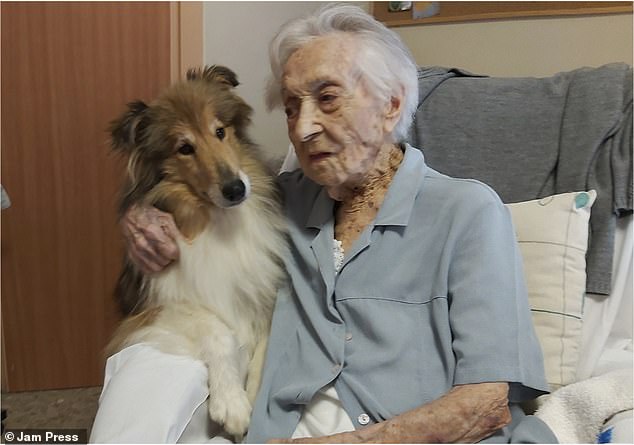
The supercentenarian’s daily routine included regular consumption of probiotic yogurts, which the scientists suggest ‘will have played an important role in her healthy ageing’
The mother-of-three was healthy for most of her life and only suffered from hearing loss and joint pain.
She lacked molecular markers of age-associated disease and had efficient cholesterol and lipid metabolism, which are linked to longer life and to good cognitive health.
‘These are all critical because they’re linked to diseases that are typical in older people and they kill you at the end,’ Dr Esteller told The Guardian.
Scientists also found that protective caps called telomeres on the ends of her chromosomes were extremely short, which could have protected her from cancer.
Professor João Pedro de Magalhães, at the University of Birmingham, told The Times: ‘These outliers in longevity could provide insights into how to age more gracefully.
‘If we could figure out which specific genes are associated with extreme human longevity and healthy old age it could provide clues about mechanisms for ageing as well as drugable targets to develop interventions that allow everyone to live longer, healthier lives.’

